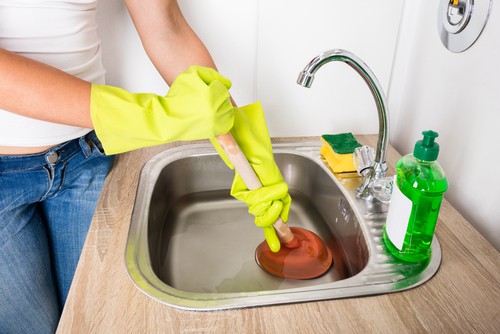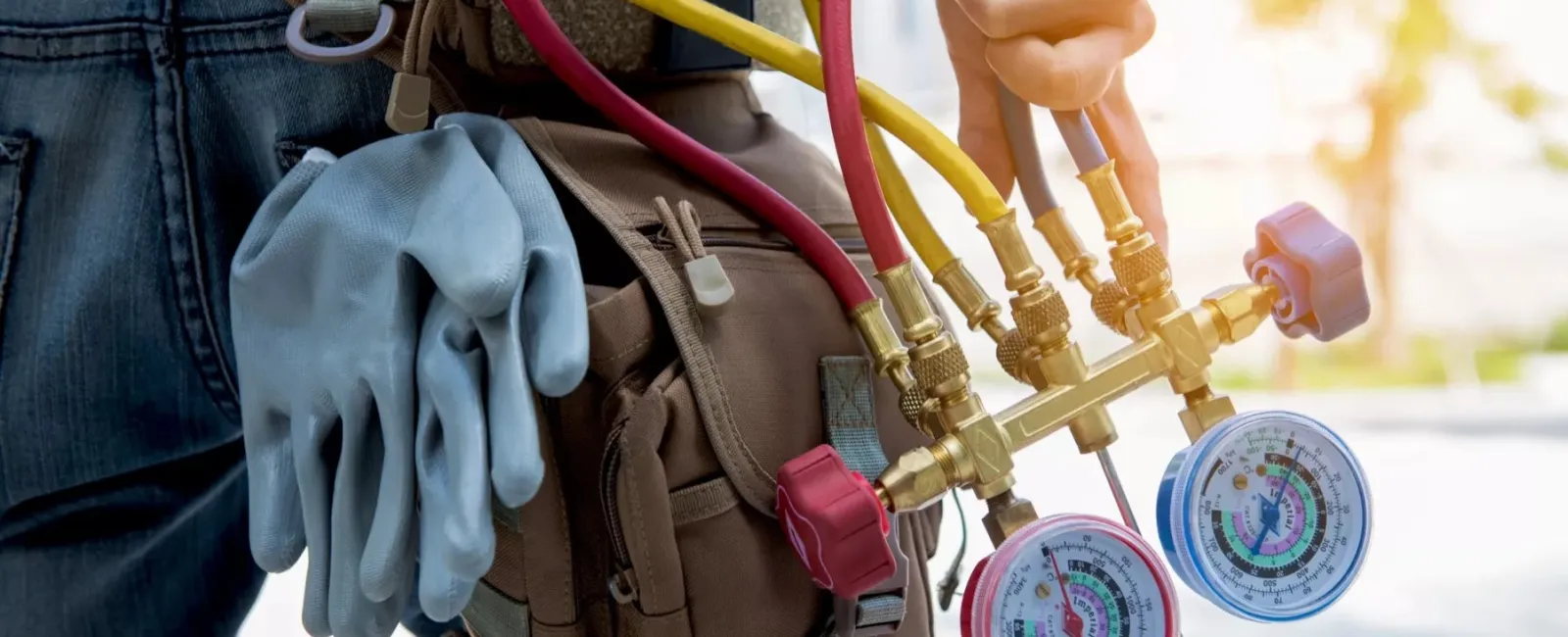We've stumbled upon this post about Expert Tips for Managing a Plumbing Emergency Until Help Arrives below on the web and figured it made sense to share it with you on my blog.

Plumbing emergency situations can strike at any moment, triggering stress and potential damages to your home. Whether it's a ruptured pipe, a blocked drain, or a leaky faucet, recognizing just how to handle the situation until a specialist plumbing technician shows up can save you from more difficulties. This post offers essential emergency situation plumbing pointers to assist you reduce damage and reclaim control during a pipes dilemma.
Turn Off the Water
The primary step in any pipes emergency is to shut off the water. For localized issues, such as a dripping faucet or commode, shut off the valve near the component. In the case of a significant leak or burst pipe, find your home's main water shut-off shutoff and turn it off immediately. Understanding the area of these valves beforehand can conserve valuable time throughout an emergency.
Shut down Your Water Heater
In particular emergencies, such as a ruptured pipe, it's important to turn off your hot water heater. This stops getting too hot or damage to the device when water quits flowing. Switch off the power supply to the water heater (electrical or gas) and let it cool off to prevent possible risks.
Momentarily Stop a Ruptured Pipe
A ruptured pipeline can result in substantial water damage in mins. To alleviate the issue:
- Clamp or Wrap the Pipeline: Make use of a pipe clamp, rubber, or air duct tape as a short-lived seal.
- Divert Water Circulation: If possible, divert the water right into a bucket or container to restrict damage to surrounding locations.
- Maintain the Area Dry: Usage towels or a wet/dry vacuum cleaner to remove standing water.
- Call an expert plumbing professional instantly to attend to the problem permanently.
Have an Emergency Situation Pipes Package
Prepare a standard plumbing emergency package to handle minor concerns effectively. Your set should consist of:
- Flexible wrench
- Plumbing professional's tape
- Pipe clamps
- Towels and cloths
- A bettor
- Epoxy putty
- Bucket.
- Having these tools available can make a substantial distinction in your ability to take care of emergency situations.
Unclog Drains Safely.
A clogged up drain can be an aggravating and untidy issue. Here's how to tackle it:. - Utilize a Bettor: For sinks or commodes, a bettor can usually displace minor blockages. Ensure you use the appropriate kind of bettor for the component.
- Warm Water and Recipe Soap: For grease-related obstructions, put a blend of warm water and meal soap down the drain to break up the grease.
- Avoid Chemical Drain Cleaning company: While alluring, chemical cleansers can create even more injury than excellent, especially to older pipes.
- If these methods don't function, stay clear of making use of too much pressure, as it might get worse the clog.
Take Care Of Overflowing Toilets.
An overruning commode can trigger instant turmoil. Below's what you need to do:. - Quit the Water Flow: Remove the tank cover and weigh down on the flapper shutoff to stop water from entering the bowl. Switch off the water to the commode if needed.
- Dive Carefully: Use a toilet bettor to get rid of the clog, however stay clear of hostile plunging, which can trigger splashing or additional damage.
- Include the Spill: Use towels or a wipe to tidy up water rapidly to prevent flooring damages.
Address Little Leaks with Short-term Fixes.
Tiny leakages can rapidly become substantial issues if left unattended. Use these short-lived repairs up until expert assistance arrives:.
- Pipeline Tape or Epoxy Putty: Use water resistant tape or epoxy putty to briefly seal the leakage.
- Rubber and Clamp Technique: Wrap an item of rubber or an old inner tube around the leak and safeguard it with a hose pipe clamp or duct tape.
- Pails or Towels: Place pails under the leakage to include water and protect against damages to flooring or furnishings.
- While these repairs aren't permanent, they can aid decrease water loss and damage.
Handle Frozen Piping Carefully.
In cooler climates, icy pipes are an usual emergency. If you suspect an icy pipe:. - Shut off the Water: Shut off the major supply of water to stop a burst pipeline.
- Thaw Gradually: Utilize a hairdryer, hot pad, or warm towels to thaw the pipeline gradually. Stay clear of open flames or extreme warmth, as these can harm the pipe.
- Evaluate for Leaks: Once the pipe is defrosted, check for splits or leaks prior to transforming the water back on.
Know When to Call a Professional.
While quick fixes can help momentarily, specific plumbing problems require prompt professional focus. Call a plumbing technician if:.
- A ruptured pipe triggers extensive flooding.
- Drains or commodes remain clogged up in spite of your initiatives.
- You discover relentless leaks or water stress issues.
- Your hot water heater is leaking or malfunctioning.
- Immediately getting in touch with an expert makes certain the issue is fixed appropriately and prevents additional difficulties.
Prevent Additional Damages.
Taking fast activity to minimize damage can conserve you money and time in the long run. Right here's exactly how:. - Relocate Valuables: Remove furniture, electronics, and various other things from the affected area.
- Use Sandbags: For flooding circumstances, area sandbags around the area to redirect water.
- Turn off Electrical energy: If water has actually gotten to electric outlets or devices, turn off the power to stop shocks or fires.
Conclusion.
Plumbing emergencies can be overwhelming, however with the ideal expertise and devices, you can manage the situation efficiently up until assistance shows up. By shutting off the water, resolving tiny leaks, and using temporary fixes, you can minimize damage and maintain your home safe. Bear in mind, these pointers are short-lived services; always seek advice from an accredited plumbing technician to manage the source of the issue. Preparation and quick thinking are your best allies in any pipes emergency situation.
8 Helpful Tips for Managing Plumbing Emergencies at Home
If your plumbing system hasn’t failed once, wait for it because almost everyone has a story to tell. Sometimes, it could be simple emergencies such as a leaking pipe, a blocked cistern, or even a big burst pipe. In situations like this, you need to have some handy tips to save you some money and from possible damages.
Take care of minor issues early.
Sometimes, you could have avoided an emergency by taking proactive measures while it was still early. Some major plumbing emergencies can be a result of an ignored minor issue. We recommend that you have items like plumbing tapes and other related items. A plumbing tape can allow you to manage minor leaks before the plumber arrives.
Cut off the water supply.
This tip is essential in almost any type of leakage problem. For problems like minor leakages in the toilet or kitchen, turn off the supply that takes water to the affected pipes. If the leakage is a major pipe, you must shut off the supply valve to the entire building. This will help you avoid flooding your home and neighbors if you share a flat.
Know your plumbing system
Folks typically move into a new apartment without understanding the water supply around the building. This can prove disastrous if a water emergency arises and the plumber is far away. The previous tip will prove useless if you don’t practice this one. More importantly, know where your water shut-off valve is located – you’ll need that knowledge to prevent potential home floods.
Have some common handy tools
There are lots of plumbing emergencies that you can handle without hiring a plumber. That’s why you must keep some tools available always. Some tools that you can use to fix simple plumbing emergencies easily include plumbing tapes, screwdrivers, thread seal tapes, plungers, pliers, tape measures, and rubber gloves.
Insulate your pipes from cold
You’ll save yourself from many plumbing expenses if you protect your water pipes from the cold. This is because of the harmful effects that cold weather can have on your pipes. During winter, your pipes can burst from being overly expected to freezing temperatures. So, make sure insulators are there to keep the pipes working correctly.
Avoid practices that will clog your toilet.
Many people indulge in practices that can damage the plumbing system of the entire building. One of these is when they use their toilet to dispose-off garbage. They flush all kinds of things, such as paper towels, bandages, hairs, female sanitary products, etc., down the toilet. This will block your toilet in the long run, incurring unnecessary expenditures. Dump such waste in the trash instead.
Check your dials regularly.
Sometimes, there could be leakages in your home without noticing them in time. So, constantly monitor your water meter dial. If the dial is reading when there is nobody using water, this is an indicator that there is leaking. Check for leaks immediately. Call a plumber as soon as possible if you can’t find any.
https://www.constructionplacements.com/8-helpful-tips-for-managing-plumbing-emergencies-at-home/

Hopefully you liked our topic about Plumbing Emergencies: Tips on What To Do Before. Thanks so much for taking the time to browse our blog. Sharing is good. Helping people is fun. Thanks a bunch for being here. Revisit us soon.
Call
Comments on “Crucial Emergency Plumbing Advice to Follow Until Support Arrives”